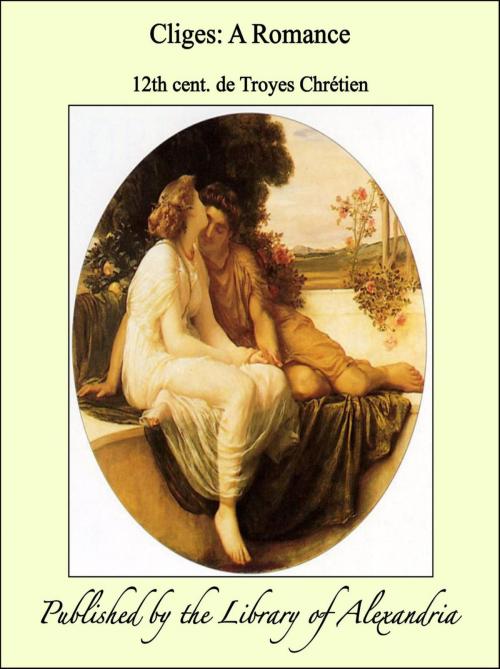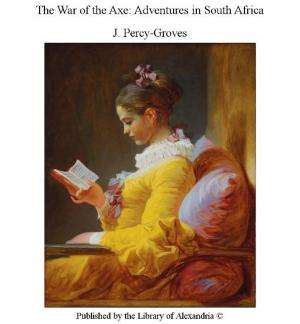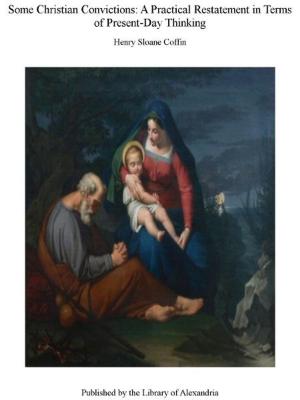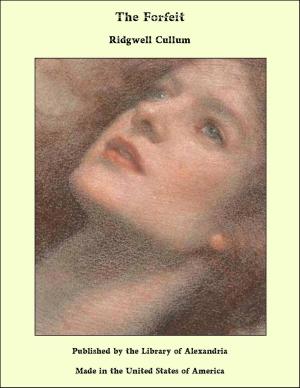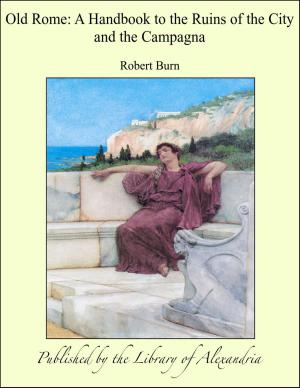| Author: | 12th cent. de Troyes Chrétien | ISBN: | 9781465562432 |
| Publisher: | Library of Alexandria | Publication: | July 29, 2009 |
| Imprint: | Library of Alexandria | Language: | English |
| Author: | 12th cent. de Troyes Chrétien |
| ISBN: | 9781465562432 |
| Publisher: | Library of Alexandria |
| Publication: | July 29, 2009 |
| Imprint: | Library of Alexandria |
| Language: | English |
IT is six hundred and fifty years since Chretien de Troyes wrote his Cliges. And yet he is wonderfully near us, whereas he is separated by a great gulf from the rude trouveres of the Chansons de Gestes and from the Anglo-Saxon Chronicle, which was still dragging out its weary length in his early days. Chretien is as refined, as civilised, as composite as we are ourselves; his ladies are as full of whims, impulses, sudden reserves, self-debate as M. Paul Bourget's heroines; while the problems of conscience and of emotion which confront them are as complex as those presented on the modern stage. Indeed, there is no break between the Breton romance and the psychological-analytical novel of our own day. Whence comes this amazing modernity and complexity? From many sources:—Provencal love-lore, Oriental subtlety, and Celtic mysticism—all blended by that marvellous dexterity, style, malice, and measure which are so utterly French that English has no adequate words for them. We said "Celtic mysticism," but there is something else about Chretien which is also Celtic, though very far from being "mystic". We talk a great deal nowadays about Celtic melancholy, Celtic dreaminess, Celtic "other-worldliness"; and we forget the qualities that made Caesar's Gauls, St. Paul's Galatians, so different from the grave and steadfast Romans—that loud Gaulois that has made the Parisian the typical Frenchman. A different being, this modern Athenian, from the mystic Irish peasant we see in the poetic modern Irish drama!—and yet both are Celts. Not much "other-worldliness" about Chretien. He is as positive as any man can be. His is not of the world of Saint Louis, of the Crusaders, of the Cathedral-builders. In Cliges there is no religious atmosphere at all. We hear scarcely anything of Mass, of bishops, of convents. When he mentions Tierce or Prime, it is merely to tell us the hour at which something happened—and this something is never a religious service. There is nothing behind the glamour of arms and love, except for the cas de conscience presented by the lovers. Nothing but names and framework are Celtic; the spirit, with its refinements and its hair-splitting, is Provencal. But what a brilliant whole! what art! what measure! Our thoughts turn to the gifted women of the age—as subtle, as interesting, and as unscrupulous as the women of the Renaissance—to Eleanor of Aquitaine, a reigning princess, a troubadour, a Crusader, the wife of two kings, the mother of two kings, to the last, intriguing and pulling the strings of political power—"An Ate, stirring him [King John] to blood and strife." The twelfth century was an age in which women had full scope—in which the Empress Maud herself took the field against her foe, in which Stephen's queen seized a fortress, in which a wife could move her husband to war or to peace, in which a Marie of Champagne (Eleanor's daughter) could set the tone of great poets and choose their subjects
IT is six hundred and fifty years since Chretien de Troyes wrote his Cliges. And yet he is wonderfully near us, whereas he is separated by a great gulf from the rude trouveres of the Chansons de Gestes and from the Anglo-Saxon Chronicle, which was still dragging out its weary length in his early days. Chretien is as refined, as civilised, as composite as we are ourselves; his ladies are as full of whims, impulses, sudden reserves, self-debate as M. Paul Bourget's heroines; while the problems of conscience and of emotion which confront them are as complex as those presented on the modern stage. Indeed, there is no break between the Breton romance and the psychological-analytical novel of our own day. Whence comes this amazing modernity and complexity? From many sources:—Provencal love-lore, Oriental subtlety, and Celtic mysticism—all blended by that marvellous dexterity, style, malice, and measure which are so utterly French that English has no adequate words for them. We said "Celtic mysticism," but there is something else about Chretien which is also Celtic, though very far from being "mystic". We talk a great deal nowadays about Celtic melancholy, Celtic dreaminess, Celtic "other-worldliness"; and we forget the qualities that made Caesar's Gauls, St. Paul's Galatians, so different from the grave and steadfast Romans—that loud Gaulois that has made the Parisian the typical Frenchman. A different being, this modern Athenian, from the mystic Irish peasant we see in the poetic modern Irish drama!—and yet both are Celts. Not much "other-worldliness" about Chretien. He is as positive as any man can be. His is not of the world of Saint Louis, of the Crusaders, of the Cathedral-builders. In Cliges there is no religious atmosphere at all. We hear scarcely anything of Mass, of bishops, of convents. When he mentions Tierce or Prime, it is merely to tell us the hour at which something happened—and this something is never a religious service. There is nothing behind the glamour of arms and love, except for the cas de conscience presented by the lovers. Nothing but names and framework are Celtic; the spirit, with its refinements and its hair-splitting, is Provencal. But what a brilliant whole! what art! what measure! Our thoughts turn to the gifted women of the age—as subtle, as interesting, and as unscrupulous as the women of the Renaissance—to Eleanor of Aquitaine, a reigning princess, a troubadour, a Crusader, the wife of two kings, the mother of two kings, to the last, intriguing and pulling the strings of political power—"An Ate, stirring him [King John] to blood and strife." The twelfth century was an age in which women had full scope—in which the Empress Maud herself took the field against her foe, in which Stephen's queen seized a fortress, in which a wife could move her husband to war or to peace, in which a Marie of Champagne (Eleanor's daughter) could set the tone of great poets and choose their subjects
